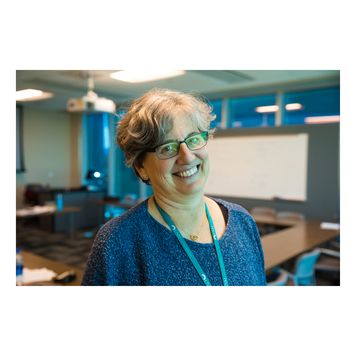Preparing for Disaster: UNM Hospital Participates in Region-Wide Emergency Training

Care for the Caregivers
Online Resources for UNM Health Providers Facing Tough Times
Everyone is experiencing heightened anxiety due to the novel coronavirus outbreak, but frontline health care workers whose job it is to provide care to infected patients have greater cause for worry.
Elizabeth Lawrence, MD, director of the Office of Professional Wellbeing in the UNM School of Medicine, is looking for ways to help health care workers alleviate their stress. She has distributed a list of digital resources that health care workers can tap into to help alleviate their stress.
"If you're on the front line and you know you're exposed to people who may be symptomatic, you worry about bringing it back to your family," says Lawrence, who says professional well-being depends on efficiencies of practice, a culture of wellness and personal resiliency.
"In this crisis, the institution has been much more nimble," Lawrence says. Newly instituted provisions for telephone consults, changes in access to UNM hospitals and clinics and changes in triage have created greater efficiencies, relieving some of the burden for providers, she says.
Lawrence has organized online support groups for providers and community benefactors have been arranging for food deliveries for hospital providers and staff. "It's about promoting a culture of kindness," she says. "We're there to support each other during this challenging time."
Personal resiliency entails self-care for people who are putting their health and well-being on the line. "It's making sure that people have a place to debrief when you're a frontline provider," Lawrence says. "It's level of pressure that's extreme, and people need a place to process that."
Because health care providers see their role as caring for others, they may feel reluctant to share their own concerns and vulnerabilities. "At a time when everyone in the country is so anxious, it's not like you can call up your friend and tell them how anxious you're feeling," she says.
Lawrence is exploring creating an online forum limited to providers where they could share their concerns and experiences with one another. Her office is also trying to create a visual art space, where people could share photos or art as a way of expressing their feelings.
She has also shared with colleagues links to online yoga and exercise instruction, as well as the Headspace and Ten Percent Happier meditation apps, both of which are offering free memberships to anyone with an National Provider Identifier (NPI) number.
Practical considerations, like finding child care for Tier 1 employees who must report to work at the hospital, has also been a concern. Jessica Kelly in Chancellor Paul B. Roth's office has been working to build resources to meet that need.
Lawrence thinks her office also has a role to play in keeping the HSC community socially connected with one another, even when practicing social distancing. "There's this idea that the world is so upside-down, so what sort of stability and normalcy and sense of calm can we provide?"
As one strategy, she's considering organizing virtual book clubs and dinner parties for students. "The idea is to come together, even if we can't see each other," Lawrence says.
"This pandemic has brought laser focus to the fact that we need a healthy workforce," Lawrence says. "If our workforce is out on 14-day quarantine, who's going to take care of the population? How we take care of our physical and mental health is important. You need your workforce, and they need to be healthy."